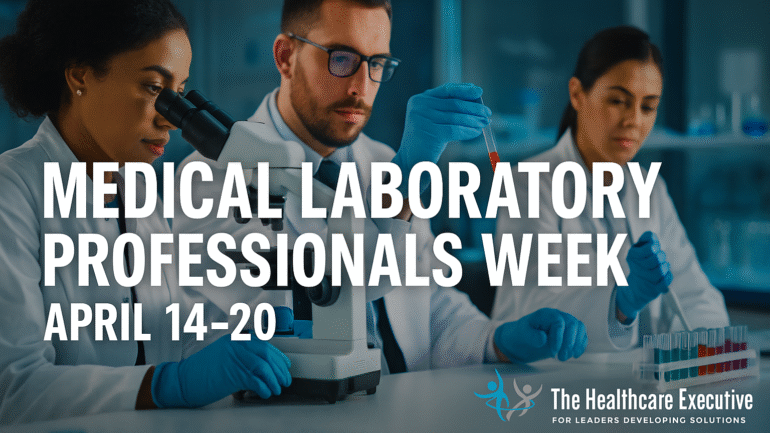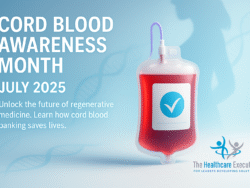Medical Laboratory Professionals Week April 2025

- Posted by Greg Wahlstrom, MBA, HCM
- Posted in Health Observance Calendar
Recognizing the Hidden Heroes of Diagnostic Excellence
Published: April 14, 2025
Medical Laboratory Professionals Week, observed from April 14–20, 2025, celebrates the dedicated individuals who perform critical diagnostic testing that informs 70% of all medical decisions. Despite working behind the scenes, these professionals ensure accuracy in everything from blood counts to genetic testing. Organizations such as the American Society for Clinical Pathology (ASCP) spotlight these contributions, helping the public and healthcare executives alike recognize their importance. At University of Rochester Medical Center, integrated lab services have reduced diagnostic turnaround times, enabling faster clinical decisions. Supporting these professionals improves not only accuracy, but also outcomes and patient trust. Their behind-the-scenes work is a cornerstone of every hospital’s patient safety strategy. As diagnostic technology becomes more complex, the need for skilled lab scientists grows. Rebuilding healthcare trust starts by acknowledging their essential role.
Throughout the COVID-19 pandemic, laboratory professionals faced unprecedented demand while navigating severe staffing shortages and test supply delays. Their perseverance under pressure enabled large-scale diagnostic responses, especially in hard-hit urban and rural hospitals. At Mount Sinai, lab teams received national recognition for their high-throughput testing innovation. The pandemic also accelerated adoption of digital diagnostics and AI-assisted pathology, reshaping lab workflows nationwide. These changes demand new competencies, creating an urgent need for training and succession planning. As highlighted in Healthcare Megatrends 2025, diagnostics will be essential when exploring hospital strategy, requiring board-level attention and investment. Executive leaders must treat labs as strategic hubs rather than support services. This week is a timely opportunity to strengthen those connections.
The future of the profession hinges on solving the workforce pipeline issue, with vacancies expected to increase 11% by 2032. Educational partners like the University of Nebraska Medical Center are stepping up with fast-track programs to meet this growing demand. However, retention remains a challenge, especially in community-based hospitals where lab professionals often face lower pay and fewer advancement opportunities. To create sustainable staffing, hospital executives must rethink compensation and offer growth tracks that include supervisory and research roles. In addition, organizations like NAHDO emphasize the growing public health implications of lab data. Recognizing lab teams as both technical and epidemiological experts reframes their importance across service lines. Addressing the workforce crisis begins by investing in diagnostic professionals as high-value contributors to population health.
Beyond diagnostics, labs are increasingly key to organizational resilience, biosurveillance, and personalized medicine. New care models at UC Health are incorporating real-time lab data into predictive analytics to prevent hospitalizations. Many labs now serve as the front line in identifying disease outbreaks and medication interactions, informing both treatment and prevention strategies. This shift toward data integration makes lab professionals central to enterprise IT, quality assurance, and executive dashboards. Yet without visibility, many leaders underestimate the lab’s strategic value. Observing Medical Laboratory Professionals Week helps reverse this trend by highlighting their role in innovation and accountability. Elevating their work is both an ethical and operational imperative for leaders building systems of care in 2025. Their success ensures safety and reliability across all patient encounters.
As we celebrate Medical Laboratory Professionals Week, let’s move beyond recognition and toward sustainable investment. The CDC’s Laboratory Stewardship Initiative outlines national strategies for optimizing lab usage and strengthening quality controls. Hospitals that embed diagnostic strategy into their executive planning will outperform those that silo these functions. Now is the time for healthcare leaders to build diagnostics into long-term transformation plans. Health systems that prioritize lab modernization, equity in staffing, and succession pathways are better equipped to meet future clinical demands. As one of the few areas in healthcare that touches every patient, lab services are a bridge between science and service. Medical Laboratory Professionals Week reminds us to honor, protect, and empower these specialists at the heart of healthcare certainty.
Discover More: Explore how diagnostics intersect with strategic planning in our recent feature, The Healthcare Workforce Crisis: Executive Solutions That Actually Work.
Internal Links:
- Rebuilding Trust in U.S. Healthcare: A Leadership Blueprint
- Healthcare Megatrends 2025: What Every Executive Must Prepare For
- The Healthcare Workforce Crisis: Executive Solutions That Actually Work
External Links:



